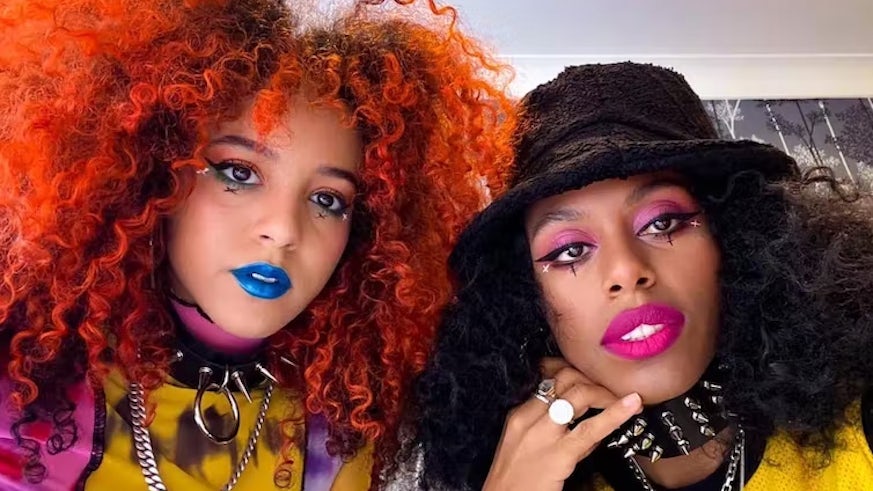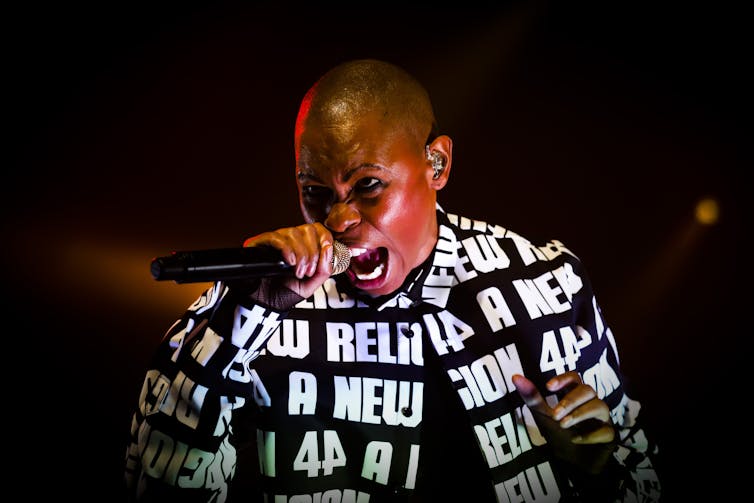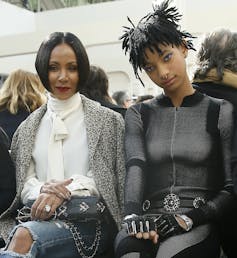Why recognition of metal, punk, rock and emo by Mobo is long overdue
6 December 2022

Alternative music has been having a moment – from successful vinyl represses by bands from days gone by, to the announcement of the festival Sick New World which features a line up of alternative music icons.
Cue the introduction in 2022 of an “alternative music” category to the Mobo Awards, an annual British music award ceremony which celebrates achievements related to black music.
The heart of this genre includes the artistry and talent of many black musicians, the DIY spirit of black punks, and the staying power of black women in heavy metal, whose substantial recognition in the music industry is long overdue.
As the podcast On Wednesdays We Wear Black (which addresses “… everything from sex, racism and gigs to myspace emo fashion”) reminds its listeners, alternative music has a rich black history.
Since 1996, the Mobo Awards have been dedicated to honouring black music against the predominantly white backdrop of the British music and media industry. Which begs the question: why has it taken so long to introduce an “alternative music” category?
From the margins to the mainstream?
As is indicated by the range of nominees for the first “alternative music” Mobo Award (Big Joanie, Bob Vylan, Kid Bookie, Loathe, Nova Twins, Skunk Anansie), black alternative musicians have been active for decades and have inspired and supported these new emerging acts.

Skin, lead singer of rock band Skunk Anansie, performs in Lisbon.
Mario Cruz
Black alternative music is undoubtedly part of black history, but the genre continues to be associated with whiteness. Black women in particular are rarely recognised for their work in this genre, due to the dominance of white and all-male bands in mainstream alternative music scenes, such as emo.

Ipswich grime/punk rock/hip hop duo Bob Vylan are one of the acts nominated in the first Mobo alternative category.
IthakaDarinPappas, CC BY-SA
The history of rock music magazine covers highlights that black alternative musicians have often existed at the margins of the mainstream, and “good” rock music has often been associated with the work of white men.
There is nothing more alternative than persisting despite dismissal by the status quo (including a status quo that views itself as “alternative”). Black alternative musicians have done exactly that by forging sounds and styles which surpass racist, sexist, and homophobic assumptions about who and what constitutes alternative music.
Bringing about change
Black alternative musicians have effectively pushed for more expansive understandings of black music and artistry and the ability to publicly call out music industries on social media has helped to spur on change.
English rock duo Nova Twins, for example, used Twitter to call for the introduction of a “rock/alternative” Mobo Awards category in 2020. The Mobo Awards responded, saying: “Rock and the alternative music genre certainly has its roots in black music and the contributions of talented musicians in this field deserve to be further celebrated.”
The efforts of black alternative music artists such as Nova Twins, and musicians and writers before them, have culminated in more recognition for this eclectic genre and a reminder of black alternative music’s place in black history.
A legacy lovingly documented
In recent weeks, uncanny AI-generated images of black people in an alternative music scene were shared on Twitter. In response, Twitter users posted photos of real black people in alternative music scenes, such as Jada Pinkett Smith who is in the nu metal band Wicked Wisdom and is parent to Willow Smith - another alternative music icon.
Even though it is still often overlooked by mainstream music and media industries, the history of black alternative music has been lovingly and carefully documented by black people online, including the detailed accounts of Tina Bell, dubbed “The ‘Black Godmother of Grunge”.

Jada Pinkett Smith and daughter Willow Smith are both notable alternative musicians.
Etienne Laurent
The introduction of an “alternative music” category at the Mobo Awards will be celebrated, but black alternative music has always been about much more than a single awards ceremony or a single person.
Hopefully the future holds more recognition, but one thing is for sure – the black alternative genre will continue to march to the beat of its own drum and make strides in ways that defy all oppressive expectations of it.![]()
Francesca Sobande, Senior Lecturer in Digital Media Studies, Cardiff University
This article is republished from The Conversation under a Creative Commons license. Read the original article.